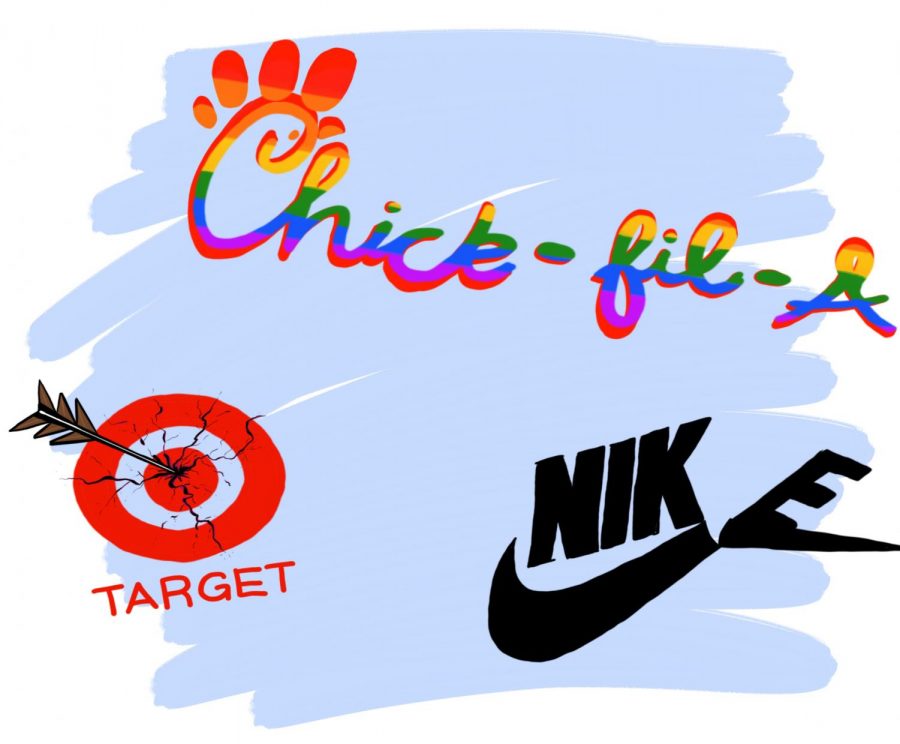More Than Just a Name
We wear Adidas because it’s on trend, use Kankens because they’re popular- but companies are more than just their merchandise
When I walk into the Nike store, I’m there for a purpose, may it be to buy shoes, a new t-shirt or pants. I, like many students, rarely consider the impact of the dollars I spend at these companies will have on bigger issues that I see in the news. After all, what would a pair of black running shoes have to do with wage theft?
Company policies and philosophies are rarely revealed through public announcements, but rather through subtle, indirect manners, such as donations to organizations and fiscal reports. In the past years, where everything is subject to controversy, some have chosen to boycott companies supporting certain agendas.
Students should be more knowledgeable about the companies at which they are spending their money. Most companies look alike on the surface, marketing toward similar audiences and selling comparable products. But behind closed doors runs a complex set of company ethics, philosophies and agendas. As a whole, students should focus more on that set of ethics, philosophies and agendas than just the merchandise.
According to the New York Times, Toronto, a city famous for its support of LGBTQ+ rights, is boycotting Chick-Fil-A restaurants when the chain announced the opening of 13 new restaurants within Toronto city limits. Chick-Fil-A made several public multi-million dollar donations to anti-LGBTQ nonprofits and organizations and is reaping the consequences. Even Jack Dorsey, the CEO of Twitter, faced backlash when Twitter users found that he had eaten at a Chick-Fil-A restaurant during Pride Month.
Despite Nike’s popularity with the general public as an athletic wear brand, it lives in controversy, infamous for child labor in the 90s. Recently, the company was revealed to steal worker’s wages, violate their basic rights and abuse their workers. The CEO made a public apology for their violation of basic human rights in the 90s, but nothing has changed. The company fixed one violation, but turned and violated other rights.
As cliche as it sounds, students should be more aware of the companies they purchase from. We should care more about the company’s policies, philosophies and ethics, than just their merchandise. We should choose the companies that are working toward a better world, by supporting fair trade, women’s rights or eliminating racial inequality. Liking a company should be about more than just their merchandise. It should be liking their philosophies behind the business concepts.
Your donation will support the student journalists of Woodbridge High School. Your contribution will allow us to purchase equipment and cover our annual website hosting costs.

Hey, Woodbridge! I'm so excited to bring the Golden Arrow to you this year as a Co-Editor-in-Chief. Working with our amazing team, I will strive to maintain...











